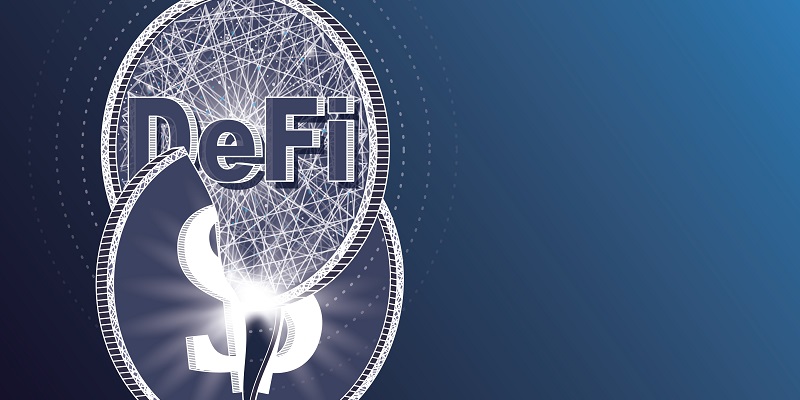Decentralized finance (DeFi) has disrupted traditional finance and opened up new opportunities for investors to participate in real estate investments. In the past, real estate investing was accessible only to high-net-worth individuals and institutional investors. Fractional ownership and decentralized real estate investment have revolutionized this by providing greater access and affordability to everyday investors. In this article, we will examine how the use of blockchain technology allows for secure and transparent transactions, providing increased transparency and efficiency in the market.
DeFi and real estate
DeFi has disrupted traditional finance by providing a new way to invest in assets. The underlying concept in DeFi is decentralization, which translates to reducing the role of intermediaries in financial transactions. Decentralization allows investors to participate in investments without the need for intermediaries such as banks. Investors can therefore participate in investments that were previously inaccessible due to high entry costs and stringent regulations.
Real estate is one such investment that has traditionally been exclusive to high-net-worth individuals and institutional investors. However, the DeFi ecosystem has opened up new opportunities for investors to participate in real estate investments regardless of their financial status. Investors can tokenize properties, enabling fractional ownership.
Fractional ownership
Fractional ownership involves dividing a property into smaller units, and each unit is sold to investors as tokens. Investors can purchase a percentage of a property, enabling them to own a portion of the asset. This allows for smaller investments and increased liquidity in the market.
Fractional ownership has opened up new opportunities for investors, especially for those looking to invest in real estate but lack substantial resources to buy an entire property. Investors can buy a fraction of a property and earn dividends when the property generates rental income or is sold. The profitability of the investment depends on the success of the property, but fractional ownership has reduced the risks associated with real estate investing, as investors no longer have to bear the full cost of the property.
Decentralized real estate investment
Decentralized real estate investment is an industry that leverages blockchain technology to enable investors to access the property market with reduced entry costs, greater transparency, and improved efficiency. By using blockchain technology, the investment process is more secure, and investors can complete transactions in a transparent manner.
The fractional ownership model has been revolutionized by decentralized real estate investment. With the use of blockchain, a real estate asset can be broken down into digital tokens that represent a fraction of ownership. The tokens can be bought and sold utilizing a blockchain-based platform, enabling investors to participate in investments that were previously beyond their reach.
Blockchain technology
Blockchain technology allows for increased transparency and efficiency in the market. Transactions can be verified on the blockchain, enabling investors to confirm that their investments have been executed as expected. Furthermore, blockchain technology enables the creation of smart contracts, which can automate various aspects of the investment process.
Smart contracts are digital agreements that automatically enforce the terms and conditions of an agreement, which eliminates the need for intermediaries and can result in significant cost savings for investors. Automation can also help reduce the risk of fraud or errors while increasing the speed and accuracy of transactions.
Cost savings
Decentralized real estate investment reduces the need for intermediaries, resulting in significant cost savings for investors. Traditional investments are associated with high brokerage fees and commissions, which can eat into the investor’s profit margins. By eliminating intermediaries, decentralized real estate investment reduces the cost of investing and has the potential to increase returns.
Increased Access
Decentralized real estate investment provides opportunities for individual investors to participate in real estate investments that were previously only accessible to high-net-worth individuals and institutional investors. Tokenization enables investors to invest in real estate assets around the globe. Investors now have access to a wider range of investment opportunities, allowing them to diversify their investment portfolios.
Future of the real estate industry
The real estate industry continues to evolve, and decentralized real estate investment will play an increasingly important role in shaping the future of the industry. Blockchain technology is expected to reduce the cost of investing and enable investors to access previously inaccessible markets. By enabling fractional ownership, blockchain technology is democratizing the real estate industry.
Horizon DAO
Horizon DAO is a DAO & DeFi ecosystem for real-world asset tokenization, focused on providing users access to income-generating real estate assets worldwide. Its goal is to create a secure and transparent marketplace for buying and selling real-world assets, optimize community-owned assets to ensure maximum returns, and share profits with token holders.
Horizon DAO is based on a community-driven governance model, with all decisions being made via a democratic process. The platform allows for fractional ownership of real estate assets, enabling investors to buy a percentage of a property, and receive dividends when the property generates rental income or is sold.
The DeFi ecosystem has disrupted traditional finance, opening up new opportunities for investors to participate in real estate investments. Decentralized real estate investment has made investing in real estate more accessible and affordable for everyday investors, enabling fractional ownership and reducing the risks associated with traditional real estate investment. The use of blockchain technology has made transactions more transparent, efficient, and secure, enabling investors to complete transactions in a decentralized manner. With the development of platforms like Horizon DAO, we can expect to continue seeing growth in the decentralized real estate investment sector.

